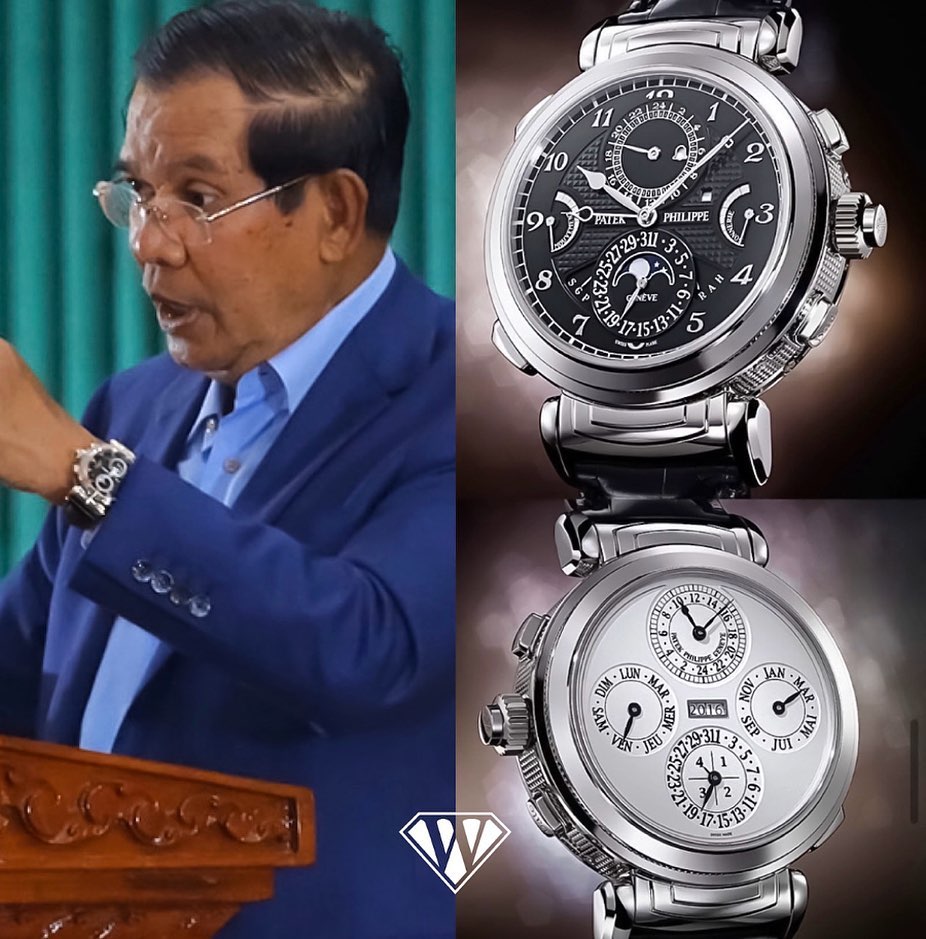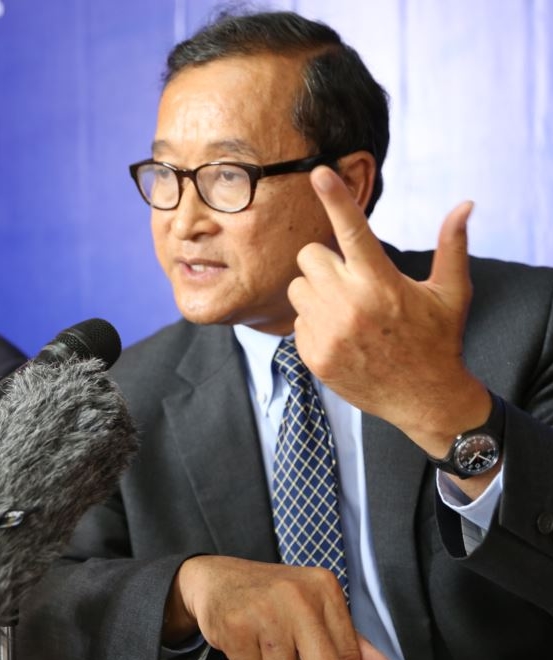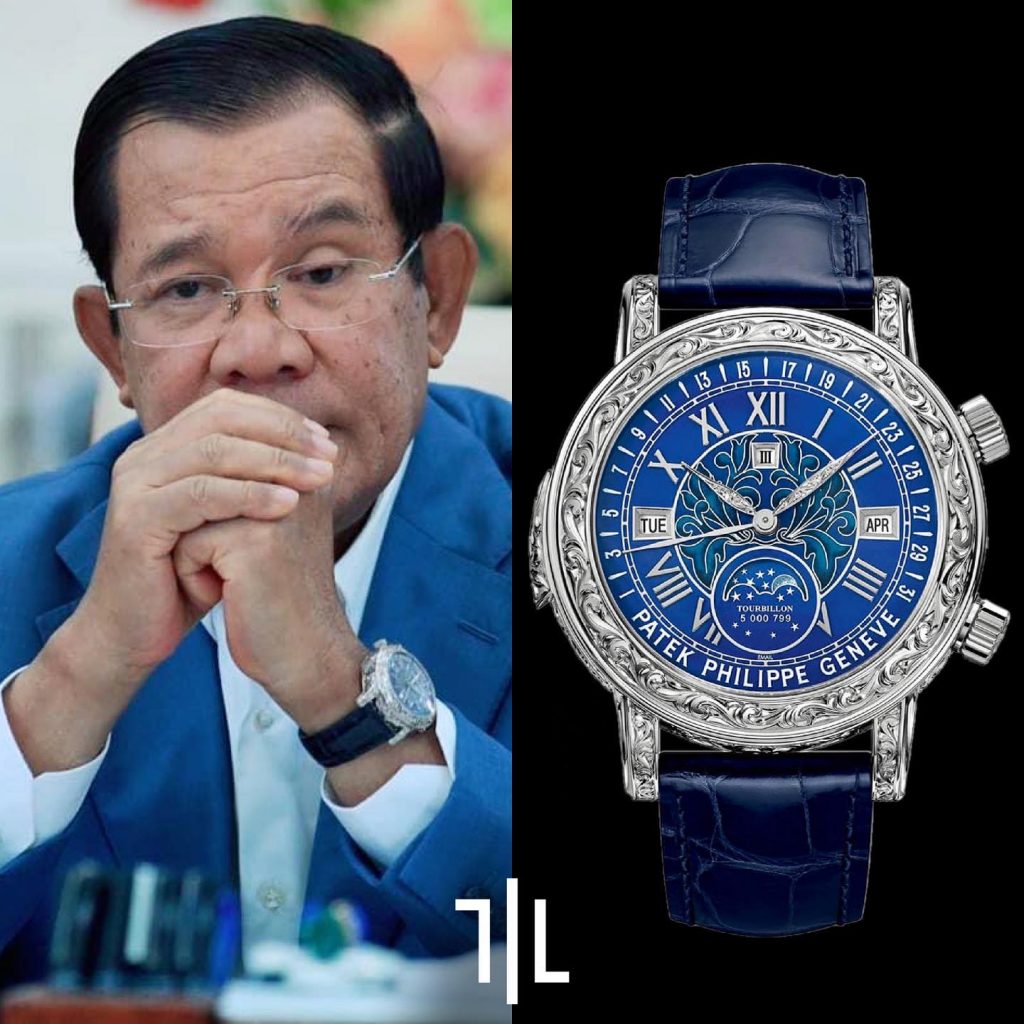Archives
now browsing by author
Fighting Against Dictatorship
Op-Ed & Original Reference: INSEAD
Manfred F. R. Kets de Vries, INSEAD Distinguished Clinical Professor of Leadership Development & Organisational Change | January 18, 2018
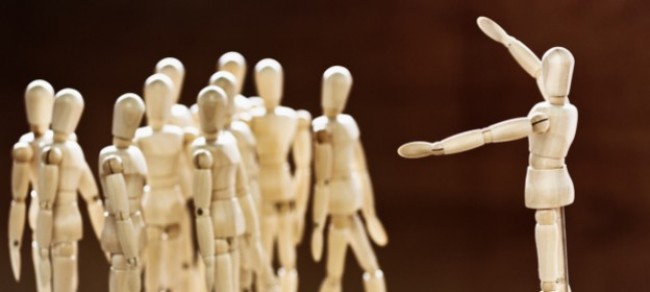
Dictatorial types gain and maintain power through a number of social processes and psychological dynamics.
From our Palaeolithic roots onwards, dictators – whether they led tribes, fiefdoms, countries, religions or organisations – have always been with us. We have always been attracted to individuals who appear strong. Some people are easily persuaded to give up their freedoms for an imaginary sense of stability and protection, not to mention an illusion of restored greatness.
Generally speaking, times of social unrest have always been the feeding ground for dictators. Periods of economic depression, political or social chaos give dictators the opportunity to appear as saviour and, when conditions allow it, seize power by coup d’état or other means. Their populist demagoguery can seduce broad swathes of the population. However, most of their inflated promises turn out to be no more than hot air. So how is it that they’re able to gain and maintain power? They succeed by taking full advantage of known social processes and dynamics.
Riding the confirmation bias: First, they are extremely talented at inflaming the “wish to believe”. Their cries of patriotism and righteousness are just what the populace wants to hear. The unquestioning acceptance of a dictator’s rhetoric is rooted in humankind’s most pervasive bias – the confirmation bias. This compels us to look for evidence to support our ideas and desires, while discounting contradictory information. Such a bias simplifies the complexity of our world, but can also be seen as a form of “neurological laziness”. As expert manipulators, dictators take advantage of this universal cognitive shortcut.
Identification with the aggressor: Dictators are also especially good at targeting socially and economically vulnerable people – those who are not always very well educated or informed and, as such, often feel confused and insecure. Dictators exploit the rage and frustration of this population through the psychological process of “identification with the aggressor”. Many of the disempowered see in the “strong” man or woman both a reflection of themselves and the promise of a victory over their downtrodden state. They are caught in the allure of illusions and magical thinking. They become brainwashed.
The blame game: Whatever the societal wrong, dictators are adept at inciting blame and scapegoating. They play off the primitive defence mechanism of “splitting”, positioning issues in terms of in- and out-groups, magnifying external threats and fanning a collective paranoia. At the same time, dictators offer themselves as steadfast saviours. Buying into the simplistic, binary propositions, their followers align themselves with the “good fight” against evil and become intolerant of those they perceive as different.
Propaganda lords: Dictators quickly learn the value of indoctrination. To maintain their hold on power, they seek to control information, ideally by centralising all mainstream media. Positive news is attributed to them and negative news is ascribed to enemies of the state. With the help of the propaganda machine, dictators become an integral part of everyone’s life. During elections, they manipulate the final outcome by curtailing press freedom, limiting the opposition’s ability to campaign and spreading misinformation – “fake news”. Dictators also try to prevent or destroy social frameworks and institutions serving as countervailing forces.
Who’s responsible for dictators?
There will always be people whose personality makeup predisposes them to dictatorship. Many past and contemporary dictators suffer from extraordinarily high levels of narcissism, psychopathy and paranoia. They have an inflated sense of self-importance and feel entitled to the admiration of others. An inherent lack of empathy, guilt or remorse allows the most malignant to commit unspeakable atrocities.
But while it is easy to vilify dictators, we should also realise that, in many ways, we (the people) are the ones enabling them. After all, a dictator cannot function without followers. Although we may not admit it out loud, it’s attractive to have others tell us what’s right and what’s wrong. But abdicating personal responsibility cripples freedom of expression and derails democratic processes. The good news is, however, that although we enable dictators, we can also disable them.
Creating a responsible electorate
In many established democracies, the descent towards dictatorship is becoming a real threat. In this light, we need to consider two urgent questions: Can dictators in the making be “cured”? And can we prevent dictators from assuming power?
I’m afraid that the response to the first question is: “not likely”. Historical experience has proven otherwise. From a clinical perspective, most psychotherapists believe that dictators (with their psychopathic traits) tend to be untreatable. Thus, many opposing powers are needed to address the second question on how to prevent their ascension.
Prevention is better than cure, so we need to recognise potential dictators before they stealthily compromise and destroy our lives. Once they are in power, it is often too late.
A healthy democracy finds footing in a populace able to listen to different points of view and manage ambiguities. It also implies a voting population that’s knowledgeable, mobilised and engaged – not the kind to believe that voting is somebody else’s business. To prevent dictators from coming to the fore requires a population that cares for liberty and takes responsibility for it. Furthermore, the government, the head of State, the legislature, the courts, the press and the electorate should all be independent to provide countervailing oversight.
Striving for a better world
In the 1940 film The Great Dictator, Charlie Chaplin satirises Nazism and Adolf Hitler while playing the role of a Jewish barber who, in a case of mistaken identity, is forced to impersonate the absolute ruler of fictional Tomainia. At the end of the film, Chaplin delivers an impassionate speech asking the populace to unite and fight against dictatorship:
“You, the people, have the power to make this life free and beautiful, to make this life a wonderful adventure… In the name of democracy let us use that power; let us all unite…
Dictators free themselves but they enslave the people… Let us fight to free the world, to do away with national barriers, to do away with greed, with hate and intolerance.”
Unfortunately, we are still far from the kind of world that Chaplin described. Many of our present world leaders are making a great effort to endanger the democratic processes. Narrow-minded nationalism, xenophobia, greed and unimaginable violence is present everywhere. It makes it even timelier to strive for the kind of world envisioned by Chaplin.
Manfred Kets de Vries is the Distinguished Clinical Professor of Leadership Development & Organisational Change at INSEAD and the Raoul de Vitry d’Avaucourt Chaired Professor of Leadership Development, Emeritus. He is the Founder of INSEAD’s Global Leadership Centre and the Programme Director of The Challenge of Leadership, one of INSEAD’s top Executive Development Programmes.
Professor Kets de Vries is also the Scientific Director of the Executive Master in Coaching and Consulting for Change (EMCCC). His most recent books are: You Will Meet a Tall, Dark Stranger: Executive Coaching Challenges; Telling Fairy Tales in the Boardroom: How to Make Sure Your Organisation Lives Happily Ever After; and Riding the Leadership Rollercoaster: An Observer’s Guide.
UN Calls for End to ‘Punitive Measures’ Used Against Cambodian Environmental Activists
UN Calls for End to ‘Punitive Measures’ Used Against Cambodian Environmental Activists
‘Human rights and environmental work are not criminal offenses,’ the UN says in a June 30 statement. 2021-06-30
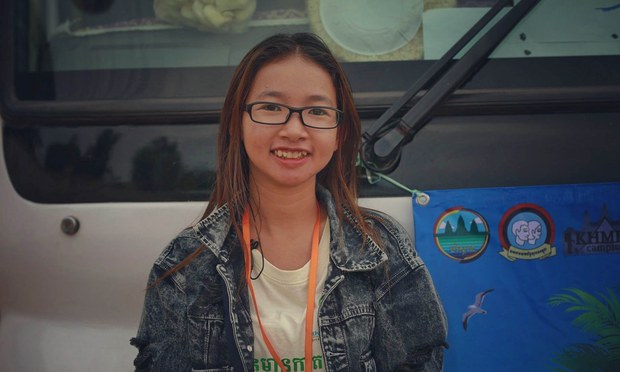
Mother Nature environmental activist Sun Ratha is shown in an undated photo.Photo provided to RFA
United Nations human rights and environmental officials called on Wednesday for an end to Cambodian authorities’ use of “punitive measures” against protectors of the country’s environment, following the arrests this month of four young environmental activists.
The four activists, members of the Cambodian environmental protection group Mother Nature, were arrested on June 16 after three of the group—Sun Ratha, Ly Chandaravuth, and Sith Chhivmeng—were arrested while filming the drainage of sewage into the Tonle Sap River in front of Phnom Penh’s Royal Palace.
Separately, authorities in Kandal province arrested Mother Nature activist Yim Leang Hy at his hometown in the province’s Koh Thom district. Sith Chhivmeng was later released after 24 hours of questioning by police in Phnom Penh.
Sun Ratha, 26, and Yim Leang Hy, 32—have now been charged with conspiracy and with lèse-majesté, or insulting the king, and are being held in Phnom Penh’s Prey Sar Prison awaiting trial.
The fourth youth activist arrested and now also held at Prey Sar—Ly Chandaravuth, 22—has been charged with plotting to topple Cambodia’s government.
The group could face between five to 10 years in prison on conviction. Mother Nature founder Alejandro Gonzalez-Davidson, now living outside Cambodia, also faces charges of conspiracy.
In a June 30 statement, Cynthia Veliko—Southeast Asia Representative for the UN Human Rights Office in Bangkok—called on Cambodian authorities to end the use of the “punitive measures routinely leveled against human rights and environmental rights workers in Cambodia.”
“Human rights and environmental work are not criminal offenses,” Veliko said.
“We urge the authorities to ensure that human rights and civil society organizations in Cambodia can operate without fear or intimidation and that their rights to freedom of expression, peaceful assembly and association are protected and respected.”
The world is now living in the midst of an environmental crisis, added Dechen Tsering, the UN Environment Programme’s Regional Director for Asia and the Pacific, also writing in the June 30 statement.
“Civil society which peacefully advocates for the environment is a fundamental partner in addressing the challenges of climate change, biodiversity loss and pollution,” Tsering said.
Cambodia rejects criticisms
Responding to the UN statement, Kata On—spokesperson for Cambodia’s official Human Rights Committee—rejected the statement’s concerns as the thoughts of individuals “whose opinions are not in the best interests of Cambodia.”
“But if these concerns are raised one day at the UN General Assembly or in meetings of the UN Human Rights Council, Cambodia will use the mechanisms [available to it] to defend its record on human rights,” Kata On said.
The concerns expressed in the UN statement are not subjective opinion, however, but the views of skilled UN staff working to fulfill their responsibilities, said Soeung Senkaruna, spokesperson for the Cambodian rights group ADHOC.
“These explanations by the Cambodian government have not won credibility with the international community in the past,” Soeung Senkaruna said.
“If Cambodia is concerned about losing its image on the world stage, or about getting respect on the world stage, it should accept findings like these and work to improve its record,” he said.
Why the Cambodian Prime Minister is being politically threatened over his watch collection
Why the Cambodian Prime Minister is being politically threatened over his watch collection
Original reference: Time and Tide
If you’re a head of state in a democratic country, it generally isn’t a good idea to wear your best watches in public. Bill Clinton, for example, famously wore a Timex during his time in office, but since leaving the White House has been spotted with the likes of Jaeger LeCoultre, Audemars Piguet and A. Lange & Söhne on his wrist. Similarly Australian Prime Minister Scott Morrison was in hot water recently over an image that appeared to have him wearing a white gold Rolex Daytona (though it turned out not to be true). The bottom line is that if you’re a leader who’s meant to represent the people who voted you into office, it isn’t a great look to be flaunting luxury goods that your electorate could never begin to afford. But this hasn’t stopped the Cambodian Prime Minister Hun Sen from putting his watches on full public display, a point that the leader of a political opposition party is now capitalising on in the election.
Cambodian Prime Minister Hun Sen spotted wearing what appears to be a Patek Philippe Grandmaster Chime 6300G. Image: superwatchman.com
Political opposition leader Sam Rainsy has started a campaign to raise money for impoverished Cambodians by selling raffle tickets to win his Casio that is worth the grand total of $5. Each raffle ticket will cost $5 and Rainsy anticipates selling more than 10,000 tickets in the three weeks that the competition will run.
Sam Rainsy wearing a Swatch. Image: wikimedia.org
This clever fundraising exercise is a political manoeuvre designed to point the spotlight directly on the watch collection of Prime Minister Hun Sen, who has ruled the country since 1985. Despite the average per capita GDP in Cambodia being just $1,500 a year, Hun Sen owns a collection of watches estimated to be worth several million dollars, including pieces from Patek Philippe and Richard Mille.
Wearing a Patek Philippe 6002 Sky Moon Tourbillon. Image: Insane Luxury
“If people want to buy my watch, they can buy a $5 raffle ticket, and if they are lucky, they will be awarded with the watch. People can buy more than one ticket if they like,” said opposition leader Sam Rainsy.
It is probably unlikely that this campaign be enough to see Hun Sen sell his collection of beautiful watches, but it does go to show that a nice watch isn’t always a good thing, particularly of you work in politics.
Locked down during Cambodia’s virus outbreak, people are running out of food
Op-Ed: Washington Post
PHNOM PENH, Cambodia — Thea is worried that he will go hungry. He hasn’t left his home in Phnom Penh since April 15, when Cambodia’s government imposed a citywide lockdown to curb the country’s first large coronavirus outbreak.
“The lockdown was so rushed that I didn’t even have time to get extra food. We have hardly any food left, but I cannot leave my house because there are so many police outside,” said Thea, a 40-year-old garment worker who spoke on the condition that only his first name be used because he feared government reprisals.
These women are the most desperate family members as their husbands and/or wives are incarcerated by the authority while their daily living are locked down completely in the compromising tactic by the dictator as he said: “in order to protect million lives, I could kill few lives”.
As Western countries gradually conquer the virus through mass vaccination, the pandemic is flaring up again in some poorer regions of the world, including Southeast Asia, despite inoculation efforts.
In Cambodia, which had avoided the worst of the pandemic, a surge in cases has led authorities to resort to an extreme lockdown that some residents say has pushed them toward eviction or starvation. On Friday, officials announced 558 new cases, bringing the total to 18,179 with 114 deaths. While the government eased restrictions in some places this week, high-risk areas remain under lockdown.
The most draconian measures apply to neighborhoods deemed “red zones,” where no one is permitted to leave home, not even to buy food. Officers patrol the streets at all hours and are authorized to fine or arrest anyone moving around without a permit. In some cases, police officers have beaten people with sticks for violating the rules — punishment the government considers “necessary” to enforce stay-at-home orders, according to Phay Siphan, a government spokesman.
Desperate for help
Thea and his wife live in a small rented room in Tuol Sangke I, a designated red zone in the capital.
Although the government has begun distributing food to cooped-up residents, Thea said he and many of his friends who are also living in red zones have yet to receive a single donation since the lockdown went into effect.
“I heard that some people have received food, but the government is not helping people equally,” said Thea. “When I talk to my friends, they are in a similar position but we don’t know how to ask for help.”
Those who have received food donations say they have been given small servings of rice, canned fish and sauce — hardly enough to feed one person, let alone a family.
With nowhere else to turn, some residents have begun posting their anguish on social media, calling for the government to do more.
“Workers are desperate. Some are posting pictures of their small kids who are starving for food. And that type of image, I think, makes the government really embarrassed,” said Khun Tharo, program manager with the Cambodia-based Center for Alliance of Labor and Human Rights, which is supporting unemployed workers during the lockdown. “One worker posted a critical message on Facebook and the district authority came to her home and asked her to delete it.”












